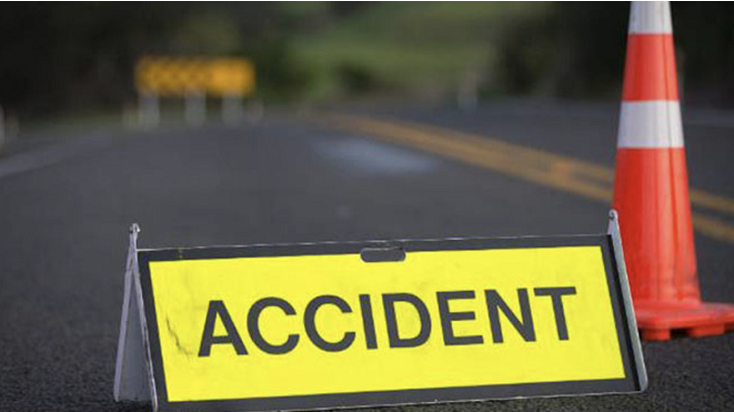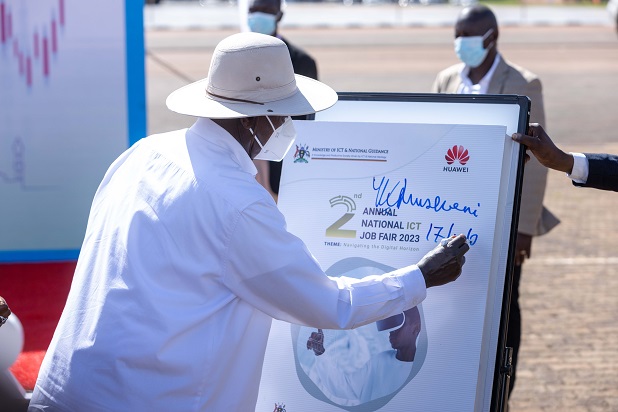City lawyer Isaac Ssemakadde (3rd Right) was the key lawyer for the petitioners/Isaac Ssemakadde photo
Following the nullification of the Narcotic Drugs and Psychotropic Substances (Control) Act, by the Constitutional Court, a number of lawmakers have vowed to return the bill back for enactment so as to curb the increasing incidences of abuse of drugs in Uganda.
The ruling by the Constitutional Court followed a constitutional petition filed in 2017 by Wakiso Miraa Growers And Dealers Association Limited who dragged the Attorney General accusing Parliament of enacting the Narcotic Drugs and Psychotropic substances (control) Act, 2016 without the quorum and the failure to conduct public hearings for all stakeholders who would be affected by the enactment of the legislation as provided for in the Constitution.
The decision by court was announced by Isaac Ssemakade, lawyer to the petitioners who cited the incidence on 19th November 2014 where the then Deputy Speaker was prompted by Muwanga Kivumbi (Butambala County), Alice Alaso former (Serere DWR) and Ruth Nankabirwa former (DWR Kiboga) to the effect that there was no quorum in the House, but the Deputy Speaker rubbished their concerns and failed to ascertain the quorum and to ensure compliance with the provisions of Rule 23 of the Rules of Procedure of parliament.
The petitioners also accused the 9th Parliament for failing to accord stakeholders adequate opportunity to participate meaningfully in the enactment of the legislation as stakeholders and other interested members of the public (especially those who would suffer conspicuous harm if the Act was passed).
In a ruling made by Richard Buteera Deputy Chief Justice, Justice Stephen Musota, Justice Muzamiru Kbeedi, Justice Irene Mulyagonja & Justice Monica Mugenyi, court pronounced itself on the matter writing, “”n the premises, I would declare the Narcotic Drugs and Psychotropic Substances (Control) Act, 2015 null and void for lack of quorum on the part of Parliament contrary to Articles 88 and 89 of the Constitution and Rule 23 of the Rules of Procedure of the 9th Parliament, 2012 made pursuant to Articles 88 and 94 of the Constitution. I would grant the costs of the Petition to the Petitioner.”
However, the ruling by the Constitutional Court attracted mixed reactions from MPs who vowed to return the legislation saying such a ruling is likely to exacerbate drug abuse in Uganda.
Isaac Katenya (Bulambuli County) described the nullification of the Act as very unfortunate but added that Parliament isn’t scared, and MPs are ready to bring back the Bill and this time around, there will be heavy moblisation to ensure the legislation doesn’t suffer the quorum challenge in courts of law again.
“The challenge of the court isn’t a big deal, it is all about quorum, which quorum we have the capability to raise. It also gives us a lesson as Parliament that whenever we pass these bills, we must be there in large numbers. The Bill is going to help us protect society ad our children and it is going to help us control the smuggling of dangerous substances into our country,” he said.
Robert Kasolo (Ik Ik County) questioned the motive of the Constitutional Court quashing the legislation arguing that on the day the bill was considered, there was no MP who raised the issue of quorum, wondering what grounds Court based to nullify the legislation, but said it isn’t a big deal, the legislation will be brought back for reconsideration.
He said, “If court has ruled that we never had quorum, I want to assure Ugandans that that isn’t an issue, we are still alive. It will be returned, we sit and pass it again, that is very easy. It isn’t a big issue, we passed it in good faith to help Ugandans who were getting intoxicated. Now that it has been returned, it is an eye opener, we are going to make it more deterrent.”
Basil Bataringaya (Kashari North) welcomed the ruling by court arguing that this gives chance to Parliament to always follow the rules and provisions in the constitution during the consideration of bills.
“Lack of quorum shows unseriousness on the side of Parliament, so going forward, with the leadership of the current Parliament, there is insistence on people coming in and vote. This is a very important bill because it deals with drug trafficking, it deals with control of our drugs that are finishing our young people and it deals with those things that make someone incapacitated,” he said.
Milton Muwuma (Kigulu South) welcomed the ruling by court arguing that in the principle of separation of powers and operating in a democracy, Parliament would respect the decision by the Judiciary, but warned Ugandans against taking advantage of the latest decision by court to increase their uptake of banned drugs and substances arguing that there are still provisions in other legislations that can be used against them.
“This law was meant to mitigate the increasing occurrence of drug abuse and drug addiction. If Government doesn’t move fast, we shall move it like private members and have this law re-tabled, because it had a lot of research, we put in a lot of time, to ensure that we pass this law. So it shouldn’t be an issue of panic. This law took a lot of time in terms of research,” said Muwuma.
It should be recalled that in April 2015, President Museveni signed Narcotic Drugs and Psychotropic Substances (Control) Act, 2016 into law, criminalizing the possession of narcotic drugs and psychotropic substances, where any person in possession of any narcotic drug or psychotropic substance commits an offence and is liable on conviction to a fine of not less than five hundred currency points or three times the market value of the drug, whichever is greater; or to imprisonment of not less than ten years but not exceeding twenty five years, or both.
Parliament also criminalized trafficking in narcotic drugs and psychotropic substances, where any person who traffics in a narcotic drug or psychotropic substance commits an offence and is liable in respect of the narcotic drug or psychotropic substance to a fine of not less than five hundred currency points or three times the market value of the narcotic drug or psychotropic substance, whichever is greater, and in addition, to imprisonment for life.





